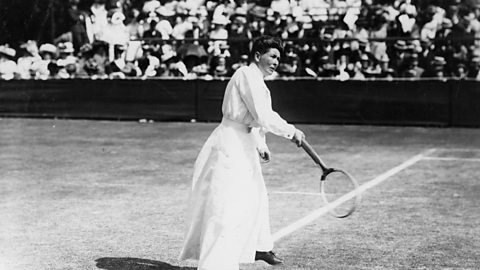Elite sport, the media and sponsors
Sport has always grabbed people's attention. For example, attendance at football games in the early 1900s regularly exceeded 40,000. The stadium built for the 1908 London Olympic Games seated over 68,000 spectators and was a forerunner to the modern all-seater stadia. This means that sport has the potential to influence a wide range of people.
In more recent times, the combination of global media coverage, huge sponsorship deals and more athletes training full-time means that some elite sports are a very lucrative business.

Commercialism in sport is about making a profit from sport. This involves three main groups.
Sport
Sport benefits from commercialism. Increased revenue helps individual sportspeople and sports organisations to increase participation, improve performances and attract support. As technology becomes an increasingly important element of sport and sports compete with each other to engage participants and spectators, funding is even more crucial.
Media
The media benefits from the commercialisation of sport. High profile sports stories help to attract audiences, listeners and readers. In turn, the media makes sure that sport keeps a high profile.
Sponsors
Sponsors benefit from the commercialisation of sport. Their funding is essential for sport’s growth. In return, high profile coverage of sport ensures a high profile for their companies and products.
In this way, sport – particularly elite sport, the media and sponsorship are interlinked. This is called the golden triangle.
As well as its many benefits, commercialism in sport can also be negative. For example, some people believe that the commercialisation of elite football in the UK has changed the game for the worse and is destroying the traditional community-based links between supporters and clubs.